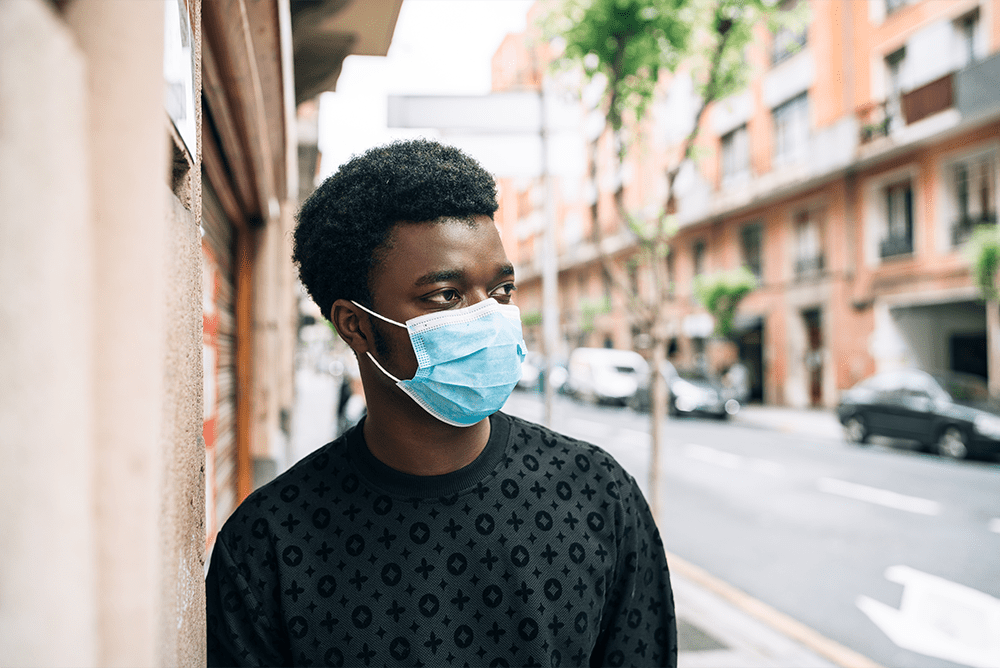
With COVID-19 vaccines available, the push for returning to “normalcy” has been the focus of the global community. Though, after a year of navigating the pandemic, you might feel exhausted, and the last thing you’re ready to do is to go full throttle back into how things were. There might also be many emotional and hormonal imbalances due to the pandemic you want to heal before you re-enter the world.
Additionally, perhaps you have grown comfortable and have become productive at managing your daily life from home. Understand, for you and many others, the idea of restrictions lifting could be cause for more anxiety rather than excitement. The added pressure and stress might also challenge your recovery and lead you toward negative thoughts and behaviors. You’re not alone, and there are some tips and tools that you can apply to your situation to aid you in your entry into the post-pandemic world.
Focus On What You Can Control
Much of stress and anxiety is the result of feeling uncertain about things out of your control. Therefore, you might try and dictate things out of your control, which could feed your anxiety and stress. It is essential to remind yourself to focus on what you can change. For example, if friends, family, and peers are pressuring you to meet up with them and you’re worried about the pandemic, then make a list of the relevant aspects of your day that you can control. For example, you could get your vaccine and ask if others have gotten theirs, you can continue to wear a mask and social distance, and you might suggest that friends and family hold gatherings outside.
Additionally, another way to deal with uncertainty and the things you cannot control is to think back to other uncertain times. For example, the beginning of the lockdown. Remembering your experiences during challenging times will remind you that you have been resilient before, and you can use the same resilience now.
Compose a List of What You Want to Do
Since you have been living the past year focusing on what you cannot do and finding alternatives, it might help to focus on the things you are excited to do again. Remember, while you might not be ready today to jump back into things, there is still a lot to be hopeful for in the future, and the post-pandemic world is underway. Creating a list of things you are excited to do will also help shift your anxiety about the future toward a positive outlook filled with experiences just waiting for you. Your list does not need to include anything you don’t feel comfortable with; it could be seeing people in person again, visiting a doctor, or going for walks outside. These are things that you can get excited about when you feel it is safe to do so. The idea is to help you realize that there will soon be a possibility to do things we have set aside during COVID-19.
Accept Your Feelings
No healing in life or recovery happens without being able to accept how you feel. Don’t judge yourself for whatever you are feeling. Negative self-talk or feeling like you have to keep up with others will only lead to more anxious and potentially harmful decisions. After the past year, it is okay to feel a range of emotions. You might even experience these emotions in drastic swings or simultaneously. COVID-19 reshaped many people’s perspectives on life, and it might be stressful to realize that you have these incongruent emotions. Understand that you are not alone and that it is crucial to allow yourself to feel everything. The key is to remember to go easy on yourself and be accepting of your feelings.
You might also be coming out of lockdown with your life, body, job, and relationships much different than when you entered it. Part of accepting your feelings is also accepting your reality and that things might never return to how they once were. To aid you, utilize mindfulness, meditation, or exercise. These practices will further help you cope with your emotions and explore ways to manage them. It might also help to keep a gratitude journal and list how far you have come and what you are thankful to have in your life after the pandemic. Examples could include your sobriety, friends, family, and peer support.
Reintroduce Activities Slowly
After a year of restrictions and having to remain indoors for the majority of the time, you might feel like you never want to take these social freedoms for granted again. It might be tempting to plan social gatherings, make dinner reservations, or go on a road trip all in one week. Making too many plans too fast could result in burnout and anxiety. It is essential to acclimate according to your needs and responsibilities and remember that it is okay to say no. Moving too fast could lead to disappointment. Make reasonable plans and pace yourself.
While some people might find the transition back into “normalcy” exciting, many others find the idea stressful, and it is essential to know that this is okay. If you have tried to manage your anxiety but discover that you’re still not making progress, then the time to seek help is today. At Choice House, we focus on the needs and recovery of men. If you are struggling with anxiety, we will help you evaluate how severe your symptoms and behaviors are and then implement an effective treatment and therapy approach. Since we do not subscribe to the one-size-fits-all treatment approach, our efforts, therefore, strive to meet your individual needs utilizing both conventional and alternative methods. Your recovery journey is ultimately your story to tell; we help you with that first chapter. To begin your adventure toward recovery and a life filled with meaningful people and experiences, reach out to us at Choice House today and call (720) 577-4422.
